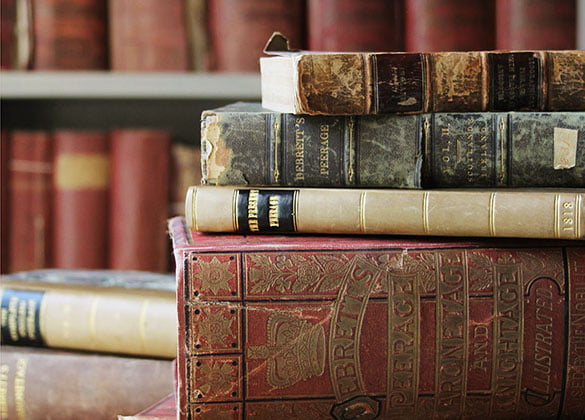
Tracing its origins to feudal times, peers were vassals of the monarch (servants who swore an oath of loyalty in exchange for protection or a fief - a bequest of land or money). These barons were periodically summoned to the Counsel or Parliament, forming the origins of the House of Lords.
Historically the peerage formed a tightly knit group of powerful nobles, inter-related through blood and marriage in successive generations, and highly protective of their lands and rights. Their fortunes rose and fell according to the stability of the kingdom and their favour with the Sovereign. The Tudors, for example, executed, imprisoned or suppressed almost every nobleman who had any Plantagenet blood in his veins, and instead created a new aristocracy from the lesser branches of old families, and from the gentry and knightly classes.
Subsequent changes made by the royal houses of Stuart, Hanover and Windsor have similarly brought new blood and new titles to the peerage. The ranks of the peerage were further enlarged by the passing of the Life Peerages Act of 1958.
The last three hereditary peerages (excluding royal peerages) were created in 1984, when Harold Macmillan was created Earl of Stockton, and William Whitelaw and George Thomas were created Viscounts. Of these three, only Macmillan had an heir.
The separate Peerages of England and Scotland continued until 1707, when the two Kingdoms combined under the Act of Union as the Peerage of Great Britain. The separate Peerage of Ireland existed until 1801, when Great Britain and Ireland were combined under a second Act of Union. Since 1801 the peerage has been styled the Peerage of the United Kingdom.
The establishment of the Irish Free State in 1922 did not affect the rights of the hereditary peers of Ireland to their titles, and the Lord Chancellor's Office continues to receive and report on their claims to have their names added to the Roll of the Peerage.
While the (reform of the) House of Lords Act in 1999 has greatly reduced the political power of the peerage, their social influence remains undimmed, and their lives remain a source of interest and speculation.
Since 1910, an Official Roll of baronets has been kept at the Home Office.
Only those who have proved their claim to a baronetcy appear on this roll and since that date it has been the case that: 'no person whose name is not entered on the Official Roll of Baronets shall be received as a Baronet, or shall be addressed or mentioned by that title in any civil or military commission, Letters Patent of other official document.'
This is why you will find various baronets within our database marked as 'de jure'. This denotes that they are the baronet but have not proved their claim and are therefore not officially recognised as such. This terminology is also used within the histories of various baronets where a claim has since been proved where one or more men who should have been the title holder have died and/or never proved their claim.
Details on how to prove a claim to a baronetcy can be found here.
The details for the current Secretary of the Standing Council can be found here.
Looks like you haven't made a choice yet.